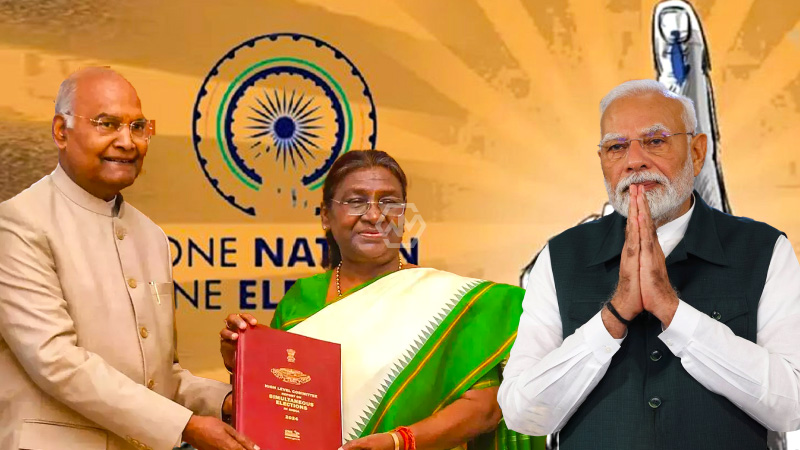- Prime Minister Modi’s Cabinet has approved the “One Nation, One Election” (ONOP) proposal, aiming to align Lok Sabha and state assembly elections.
- The government plans to build consensus before introducing the bill in Parliament, potentially during the winter session.
- Union Home Minister Amit Shah heralds the move as a significant reform to streamline elections and improve economic efficiency.
The Indian government has taken a major step towards electoral reform with the Cabinet’s approval of the “One Nation, One Election” proposal.
This initiative is designed to consolidate the Lok Sabha and state assembly elections, thereby reducing the frequency and logistical challenges associated with multiple election cycles.
One Nation, One Election” Proposal Moves Forward: Cabinet Approval and Path to Consensus
Prime Minister Narendra Modi and his administration are keen to build broad-based support for this proposal before formally introducing the bill in Parliament. The winter session is being considered for this introduction, though there is no immediate pressure to do so. The proposal has already sparked a debate between the ruling Bharatiya Janata Party (BJP) and opposition groups, suggesting that its parliamentary journey may be contentious.
Following this decision, the government plans to focus on building consensus among various political stakeholders before moving forward with the bill’s introduction in Parliament. While the winter session is a potential timeframe for this, there is no rush to present the bill immediately. This cautious approach reflects the government’s intent to secure broad-based support to ensure the proposal’s smooth passage through the legislative process.
The proposal has already ignited significant debate, with the ruling BJP and opposition parties expressing sharply contrasting views. Union Home Minister Amit Shah has praised the move as a landmark reform that will not only modernize India’s electoral system but also promote economic efficiency. Critics, however, argue that the bill could face challenges in garnering the necessary political support.
As discussions continue, the government is expected to navigate a complex political landscape to achieve consensus on the proposal. If successful, “One Nation, One Election” could lead to transformative changes in how elections are conducted in India, potentially setting a precedent for future reforms in the democratic process.
The “One Nation, One Election” proposal represents a bold reform aimed at improving electoral efficiency and reducing costs. As the government seeks to build political consensus, the eventual success of the bill will depend on navigating diverse views and ensuring broad support within Parliament.
“Today, in this direction, Bharat takes a giant stride towards landmark electoral reforms with the Union Cabinet accepting



